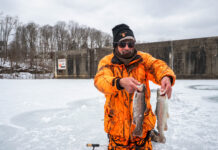As farmers, we know the cows must be milked rain or shine, hot or cold, sick or not, but what do you do when the unexpected happens? Who milks the cows, makes sure the feeding and other work gets done when the person responsible for those chores is unexpectedly unable to fulfill their duties?
There was a time when the simple answer to this question was “our neighbors will be there to help us fill in the gaps until the person is able to go back to work.” Today, though, farming neighbors are becoming fewer and fewer, and farm equipment is also more specialized, making it harder for someone to just walk in and take over your duties.
Questions need answers
What do you as a farm manager do to make sure your farm is prepared with an answer to this question before the time comes to ask the question?
Many businesses today are developing business continuity plans. This plan helps the businesses, large or small; develop a plan to deal with everything from a natural disaster to a pandemic illness to an IT failure of some sort. In short, a business continuity plan is working out how to stay in business in the event of a disaster.
For a farm, a disaster might be when the principal operator is injured in a farm accident or diagnosed with a serious illness unable to work for an extended period of time. Having the following questions answered and communicated with other farm family members and employees will help to ensure that your farm business continues to run smoothly.
How to
1). Is there more than one person who knows how to milk the cows, mix the feed, run the equipment, etc.? Many times we tend to keep all the ‘how to’ information in our heads and the person responsible for that specific job is the only one that knows how to do it.
Having additional employees — family members or part-time, fill-in workers — trained to complete each of the duties involved in the daily operation of the farm will help to fill the gaps if someone within the operation is unable to work.
Having a step-by-step guide for each farm chore can also be helpful for someone filling in to complete specific chores.
Financial responsibilities
2). Who will be responsible for the financial management responsibilities? Farmers may not be able to work outside, but may think they could still manage this part of the business.
In some cases that may be true, but other times an illness may take a greater toll physically than one may think.
Another thing to consider is many times a farm wife is responsible for some or all of the financial management of the business. If they are now acting in the role of primary care taker for an injured or sick spouse, their time devoted to this responsibility may drastically change.
Having someone else within the farm business trained and willing to fill in when needed may help with keeping records up-to-date and the bills paid.
Alternative housing?
3). If the barn burned down, where would we house/milk the cows? This is a very basic question and the farm could not go on without a plan to answer it.
It is also important to consider how you will provide feed and water. There may be a two-part answer to this question, a short-term solution as well as a long term solution. Either way having an answer mapped out before a disaster happens, will help ease the stress on the owner and the animals.
Other issues?
4). Take time to look around your farm and determine issues that need to be addressed in the case of a disaster. Answer questions related to the potential impact a disaster may have on your farm and/or the environment.
For example: Where are chemicals kept and what type of containers are they kept in? Could they contaminate the environment in the case of a fire, flood, etc.?
How about containment for gas/diesel tanks? Have you checked the strength of any poly tanks that might be used on your farm recently? What plan do you have if there would be a manure, fertilizer, or chemical spill?
Once plans are in place, be sure to communicate the steps in the plan to others involved with the farm.
We’ve asked more questions than answered here, but that is the first step in preparing for the continuation of your farm business in the case of a natural disaster, accident or illness.
We never want to think of the bad things that can happen, but developing a plan and then communicating it with employees and family members can really aid in continuing business during what normally are very stressful times for the farm family.
(Julia Nolan Woodruff is an OSU extension educator in Erie County.)












Excellent points! The Institute for Business & Home Safety (IBHS) has a free user-friendly business continuity planning tool that farmers could use to answer all of these questions and to be ready for the unexpected. Called Open for Business, the tool can be accessed at http://www.disastersafety.org/ofb_training/. IBHS is a national non-profit organization supported by the property/casualty insurance industry, whose purpose is to reduce the social and economic effects of natural and manmade disasters.